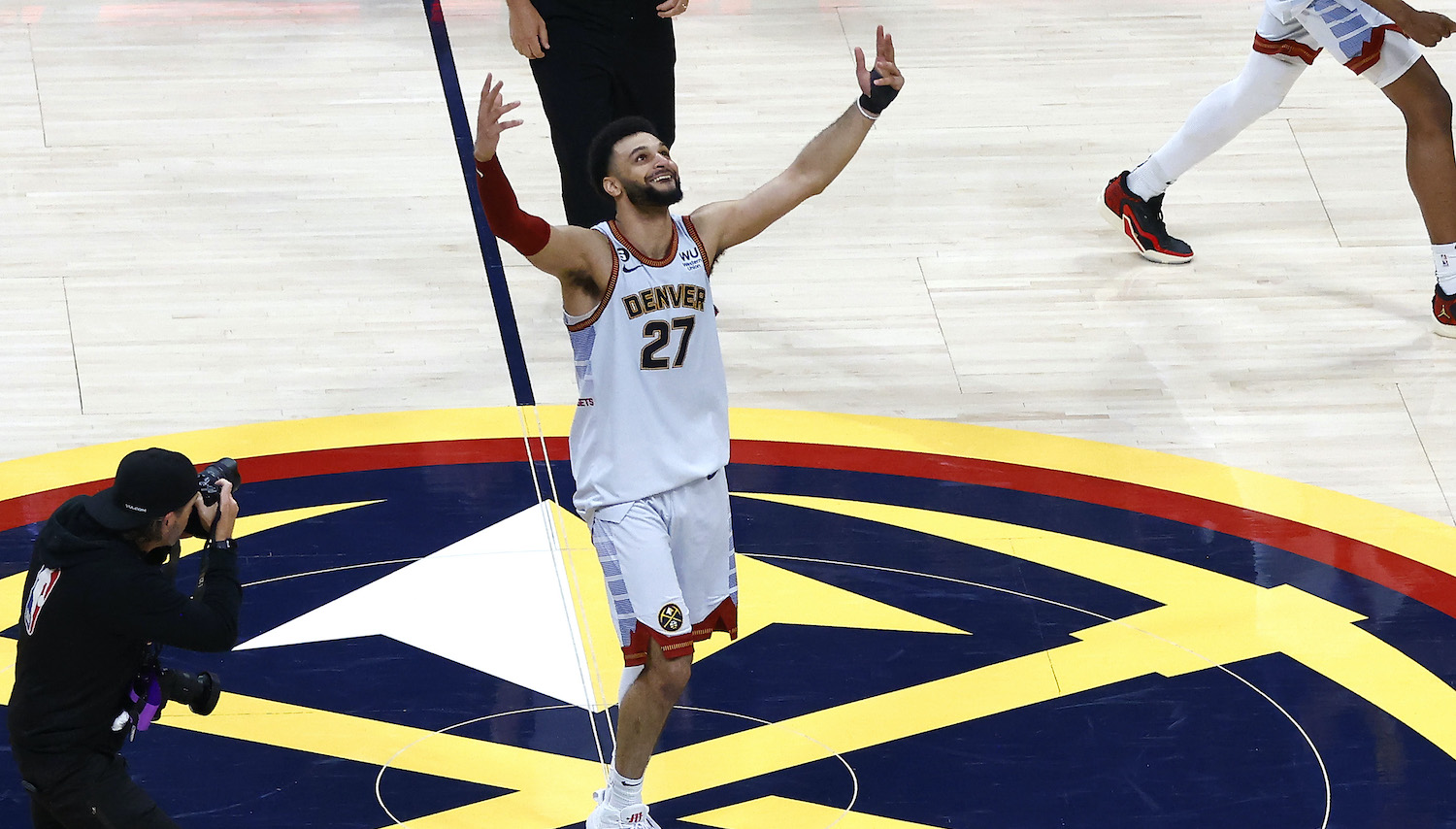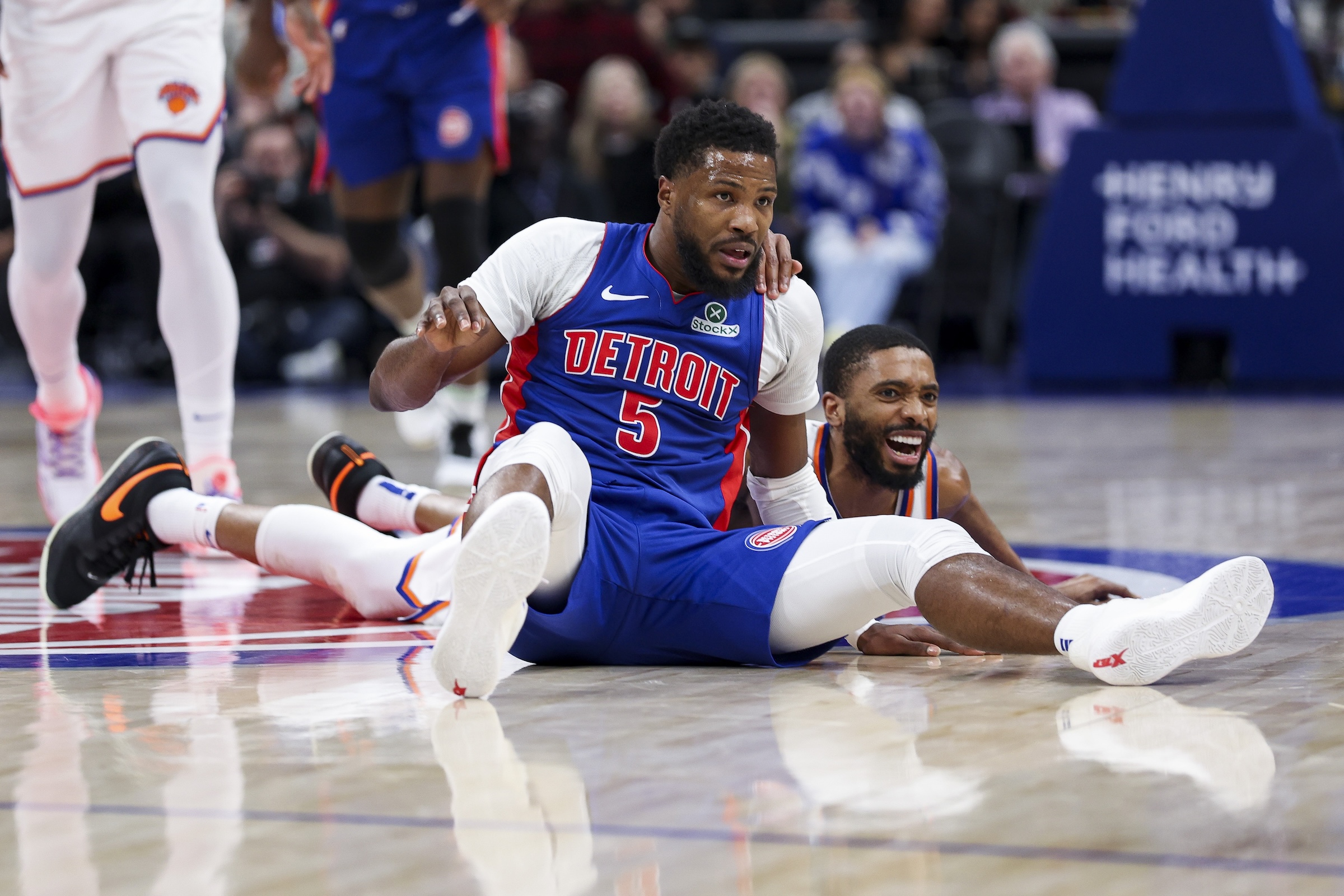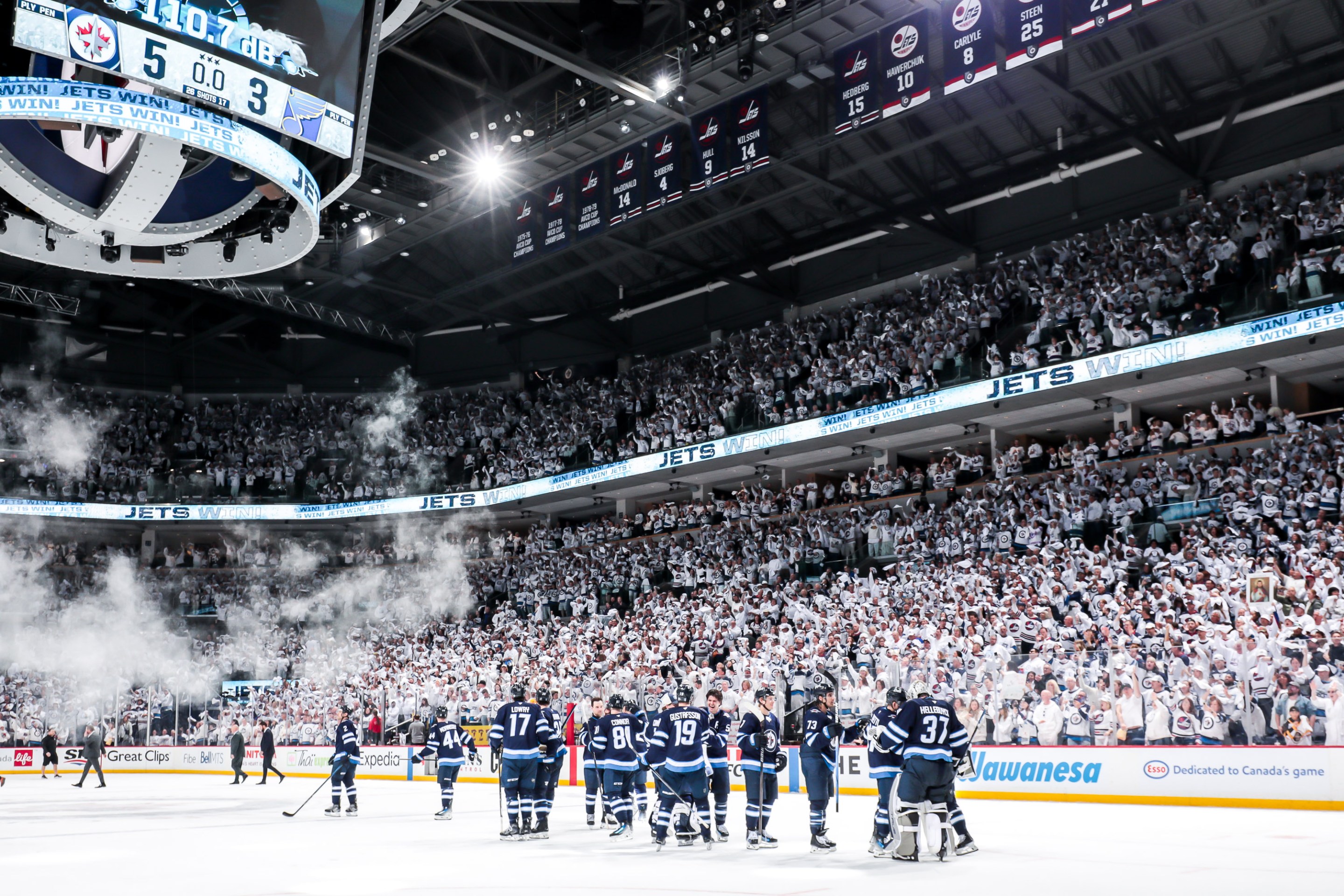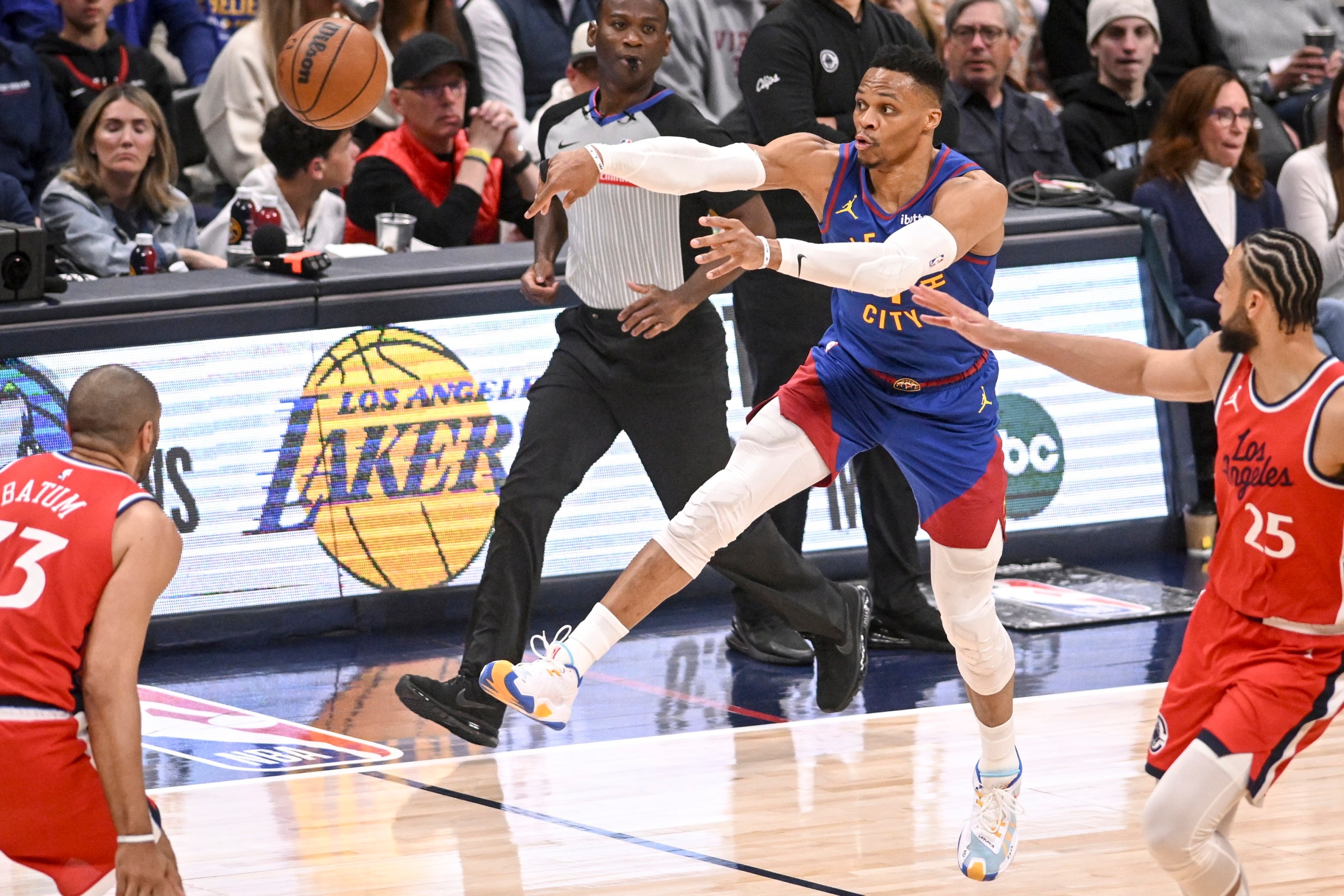Jamal Murray's story transcends that of a prototypical injury redemption arc, but the events of April 12, 2021 are such crucial context for the Nuggets' now-triumphant title quest that we must start on that grim day in San Francisco. Murray rebounds a three-pointer late in an already-cooked game, running the length of the floor and jumping into a doomed layup attempt with Andrew Wiggins in perfect defensive position, the spacial contradictions of two players attempting to occupy the same space resolving themselves with Murray landing on his left leg, instantly clawing at his knee. He refuses a wheelchair, limping off the court under his own power. News breaks the next day that he's torn his ACL, though the severity of the injury is apparent in the moment. The Nuggets had just shown themselves to be a team worth fearing after winning their first seven games with Aaron Gordon in the lineup, but the timing of Murray's injury on the eve of the playoffs meant he'd miss two postseasons. It was one of the cruelest-timed injuries in recent memory.
Returning from an injury that catastrophic to an otherwise intact title contender is no guarantee, and while Murray was not Finals MVP, his triumphant comeback provides perhaps the most satisfying narrative arc of the Nuggets' championship run. Murray's game is not as athletically contingent as, say, Russell Westbrook's, though it works so well because he can dance into his stepback against anyone, shoots a ridiculous percentage at the rim—81 percent in his pre-injury 2020-21 season, the same as that season's Finals MVP Giannis Antetokounmpo—and has the power to destroy guys his size in the post. If he were to have lost his juice, would the effectiveness of the two-man game with Nikola Jokic also dry up? As the Nuggets' five wins in two Murray-less postseasons showed, he's mission-critical. As their 16 wins this postseason showed, the juice abounds.
If Jokic is Denver's nervous system, running the offense and establishing the team's geometrically unique identity, then Murray is its beating heart. Even in the hypercompetitive, charged environs of an NBA court, Murray's snarling passion stands out, pumping hot blood into the team with his audacious scoring explosions, half-space passing genius, and all-action play on both ends of the court (I loved watching him fight back against Jimmy Butler in the post.) Murray is a guy who made his name on Curryesque scoring binges against theoretically superior teams in the bubble, so it can be easy to forget that perhaps his actual best skill is his control. Miami is perhaps the single most difficult opponent in the league to maintain one's poise against, and despite a pair of high-turnover outings in Games 3 and 5, Murray still solved every problem the Heat threw at him while playing with even more of his trademark ferocity than we saw before his injury.
I will always hold his Game 3 performance close to my heart. The 34-point triple-double he posted in that game represents his ideal state. The Heat had just seized Game 2 by shooting the lights out and restricting Murray's touches, realizing that while Nikola Jokic can't really be bothered, putting Jimmy Butler on Murray was a tactic worth pursuing. So they pursued it again in Game 3, but rather than shy away from Butler, the Nuggets destroyed Miami with an all-night Murray-Jokic two-man masterclass. Because Jokic is an otherworldly passer, it can be easy to gloss over what a gifted passer Murray is, and, somehow, he ended the Finals with two more assists than Jokic. Denver hit just five threes in Game 3 and Murray and Jokic were so good that it did not matter one bit. With their backs against the wall, Denver ran everything through Murray, and he made the right call every single time while navigating aggressive blitzes and traps. In the Game 3 triumph, Jokic's line was more impressive, but Murray won them the game.
They continued to blitz but because Murray was able to go middle, even if he wasn't able to turn the corner, there was more passes available
— John Jablonka (@JohnJablonka_) June 9, 2023
Butler has to take Jokic on the 1st pass but that leaves Braun in the corner. Lowry goes to help but he's too late pic.twitter.com/9RMHVOpSIn
Three times, the Heat stormed back into the game with little 7-0 bursts, the crowd newly aroar, threatening to swamp Denver. And three times, Murray quieted them with huge shots under immense pressure; I'm not sure he feels pressure in the way most athletes do. When the Heat finally and desperately elected to trap Murray on pick-and-rolls, it felt less like a considered tactic than a desperate lunge to do something else. In Game 4, the Nuggets ran away with it in part because they were able to endure a troubling fourth-quarter stretch without Nikola Jokic. That too was thanks to Murray calmly executing and finding the right play under incredible duress. He shook the most unshakeable team out there, and the Nuggets would win three on the trot to take home the title.
And now he's an NBA champion. Murray lost none of his ferocity while he waited two long years to come back, which is worth commending him for just as much as the title. He's still the same guy after a year-plus in the wilderness, and that guy is exactly who the Nuggets needed.






